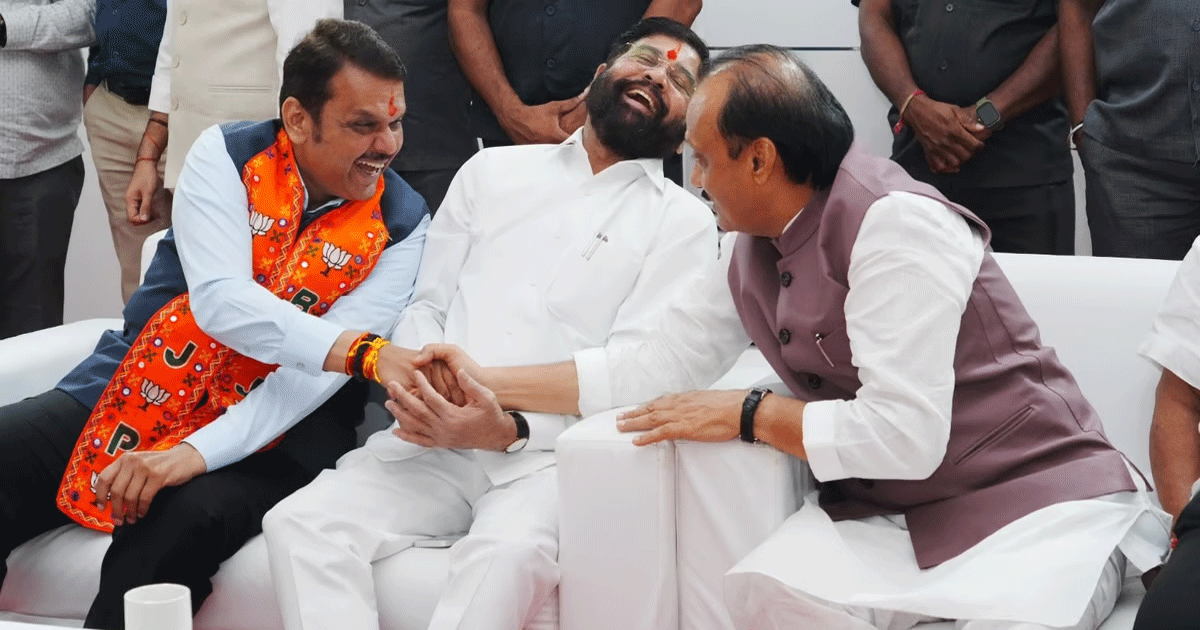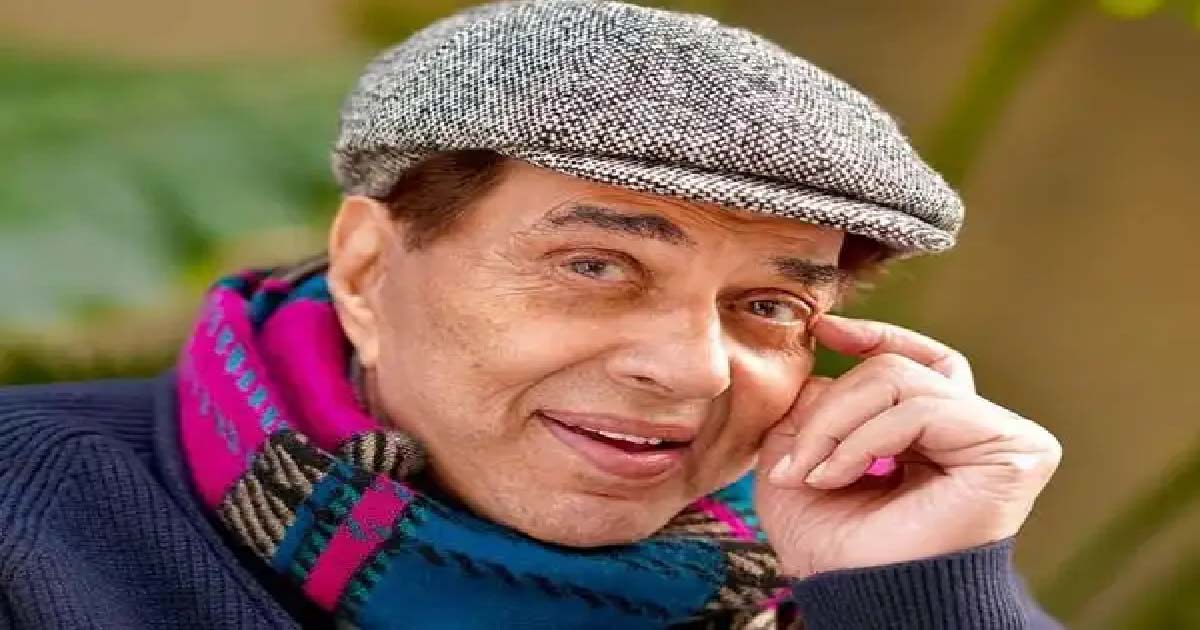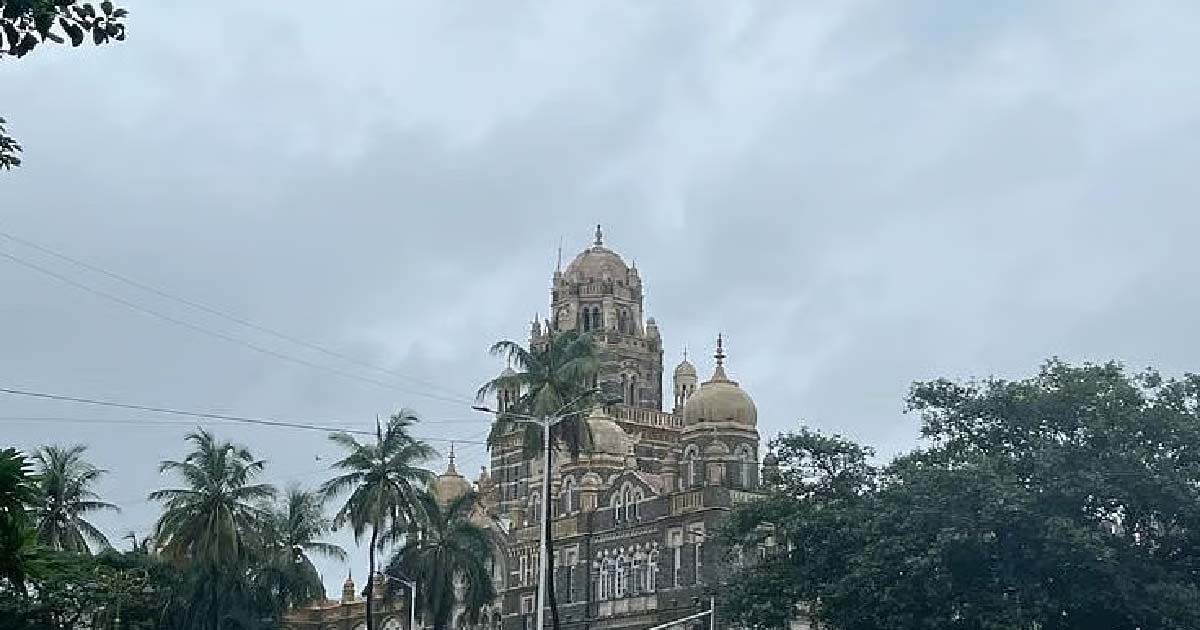Maharashtra
Maharashtra Government Form Committee To Explore Revenue Through Liquor, Cigarette Sales Amid Fund Issues

State governments, when drowning in debt, have no option but to tweak the excise policy on sin goods like cigarettes and liguor. Maharashtra may be no exception to the norm.
With its income sources already stretched thin, the cash-strapped Mahayuti government has decided to pop open a bottle of opportunity—appointing a five-member committee to explore liquor production and sales as a new revenue stream.
The committee, chaired by the additional secretary for the housing department, Appoints Committee to Study Liquor Policies for Revenue e Generation brings together a medley of bureaucrats: the additional chief secretaries from finance and state excise, the commissioner of state GST, and the member secretary, the state excise commissioner.
Together, they’ll be tasked with reviewing policies on liquor production, sales licenses, excise duties, and, crucially, revenue-maximizing practices adopted by other states, Expect a menu of recommendations on how to spice up state coffers. The committee’s. main course? A proposal already served up by the state excise commissioner, aimed at increasing annual income through liquor production and sales.
The plan? Crack down on illegal liquor sales and serve up more licenses for retail outlets. If this proposal is uncorked, it could boost the state’s revenue while also tidying up the department’ existing operations. ‘Why the sudden thirst for extra revenue, you ask? Blame the evergrowing list of populist promises made ahead of the state elections, which now need to be fulfilled. Take the Ladki Bahin scheme, for example—it demands a whopping Rs 46,000 crore annually.
Add to that loan waivers for farmers and covering electricity bills for agriculture pump sets, and you’ve got a recipe for fiscal trouble. To top it off, the state needs an extra Rs 600 crore to hike the Ladki Bahin disbursement from Rs 1,500 to Rs 2,100. Then there’s the debt. With loans soon expected to touch Rs 8 lakh crore, the state needs a sugar rush of revenue to keep things running smoothly. Aside from GST, Maharashtra relies heavily on VAT from petrol and diesel, stamp duties, vehicle taxes, and—of course—excise revenues. And so, the state is eyeing liquor sales as a cash cow.
But here’s the rub: the state’s current policy freezes the number of retail liquor licenses, a decision made back in 1974. With Maharashtra’s population growing and new urban areas cropping up, the demand for wine shops and country liquor outlets is higher than ever. The state excise department believes it’s high time to revisit this policy. Currently, there are 1,720 licenses for Indian Made Foreign Liquor (IMFL) and 4,346 for country liquor, not including those granted to restaurants with permit rooms. As population booms and urbanization spreads, the excise department is suggesting that the state loosen its grip on liquor licenses and let more outlets sprout up, bringing in fresh revenue while reducing the black market’s grip.
So, is the state taking the path of least resistance, or is it simply opening a new bottle of opportunity? Only time (and the committee’s recommendations) will tell—but it seems like Maharashtra is preparing to raise a glass to new ways of keeping the state’s finances in the black.
Maharashtra
Tension at Vashi Naka in Mumbai over the replacement of the Kali Mata idol with Mount Mary; case filed, priest arrested after protests by Bajrang Dal and Vishwa Hindu Parishad activists

Mumbai: The idol of Kali Mata in the crematorium of Chembur Vashi village was changed into the shape of Mount Mary, after which tension spread in the area, but the police have claimed to have arrested a priest in this matter, who had done the above act, which had hurt the religious sentiments of Hindus. The police brought the situation under control and also solved the case. After this incident, an attempt was made to spoil the atmosphere, but later the priest was found to be involved in it, after which peace has now prevailed here. A shocking incident has come to light in Mumbai, in which the idol of Kali Mata installed in the crematorium of Chembur Vashi village was redesigned to resemble Mount Mary. This incident has caused a wave of shock and anger among the residents of the area.
On receiving the information, the RCF police reached the spot, assessed the situation and arrested the priest involved. The police have also registered an FIR in connection with the incident.
During initial interrogation, the accused priest told the police that he had received a “dream instruction” to redesign the idol of Kali Mata to resemble Mount Mary. Following this alleged “dream instruction”, he tried to change the shape of the idol.
Given the seriousness of the matter, police officers are conducting further investigations. The motives behind the change, and whether there was any other reason or conflict behind the change, are also under investigation.
Local people and some Bajrang Dal workers expressed satisfaction with the police action and said that any kind of change without permission at religious places is unacceptable. DCP Sameer Shaikh said that the accused who changed the shape of the idol has been arrested and the investigation is ongoing. The police are also investigating why the accused committed such a questionable and controversial act, who is behind it, and on whose instructions he changed the shape of the idol. Investigations are ongoing on all these points. However, due to the situation, the police have deployed additional arrangements here and the situation is also being monitored. At present, there is peace but tension remains.
Maharashtra
Veteran Bollywood Actor Dharmendra Passes Away at 89

Mumbai: Veteran Bollywood legend Dharmendra, fondly known as the “He-Man” of Indian cinema, passed away today at his residence in Mumbai at the age of 89. His departure marks the end of an era in Hindi film history, leaving behind millions of grieving fans and admirers.
Dharmendra had been unwell for the past several days. He faced respiratory complications and other age-related health issues, for which he was hospitalized briefly before being shifted back home. Earlier today, a sense of concern arose as activity increased outside his residence, and soon after, the heartbreaking news of his demise was confirmed.
With a career spanning more than six decades, Dharmendra made his debut in the early 1960s and went on to become one of the most admired and celebrated actors of Indian cinema. From romance to comedy, drama to action, he mastered every genre and delivered countless memorable performances. His screen presence, charm, and natural acting style earned him a permanent place in the hearts of audiences.
The film industry is in deep mourning. Actors, filmmakers, and fans across the country are paying tribute, remembering him as a powerhouse performer and a humble human being. Many are calling his passing “the end of an era,” acknowledging that his contribution to cinema is both historic and irreplaceable.
Beyond films, Dharmendra was a devoted family man—deeply connected with his children, grandchildren, and loved ones. His simplicity, warmth, and affectionate nature made him beloved not just onscreen but also in his personal life.
His passing leaves a void that cannot be filled. Yet, his legacy will continue to shine through his timeless films, unforgettable characters, and the memories he gifted to generations of viewers.
We extend our heartfelt condolences to his family and pray that his soul rests in peace.
Maharashtra
Winter rains expected in the state, alert issued in three districts

Mumbai: The weather in the state is constantly changing. Now after the severe cold, the Indian Meteorological Department has given a major warning of direct rain. The state is currently facing favorable weather for rain.
The state has been experiencing cold and temperature in the last few days. The mercury is continuously falling. Pune is experiencing severe cold, Punekar is facing pink cold due to the drop in temperature. Not only Pune, many parts of the state are experiencing severe cold and cold winds are blowing from the north. North India is experiencing severe cold and the mercury is likely to fall further in the next few days. However, the cold has decreased slightly since yesterday. The mercury is falling in the districts of Mumbai, Nagpur, Akola, Solapur, Chhatrapati Sambhaji Nagar, Beed, Nanded, Parbhani, Hingoli, Ahlia Nagar, Gadchiroli, Gondia, Jalgaon, Bhandara, Ayutthaya. The mercury in Dhule fell to 7.5 Celsius. The Indian Meteorological Department has now issued a big warning.
Although the cold is being felt at the moment, the cold has decreased in some areas compared to the last two or three days. Not only this, the weather is also cloudy. Currently, the environment is favorable for rain in the state. The Indian Meteorological Department has also issued a rain warning in some districts. Rain warnings have been issued in Kolhapur, Sangli and Sindhudurg districts.
The mercury is below 10 degrees in some places. On Friday, the lowest temperature in the state was recorded in Dhule. The temperature was recorded in Dhule at 7.5 degrees. The temperature was recorded in Parbhani at 8.9. The temperature was recorded in Nafad at 8 degrees Celsius. The mercury dropped to 11 degrees in Pune, Ahlia Nagar and Mahabaleshwar. Today, the weather is favorable for rain in some cities of the state. There will be light to moderate rain in Kolhapur, Sangli and Sindhudurg.
The mercury has dropped below 10 degrees in Pune. Due to which there is a heavy fog in the air. To avoid the cold, Ganpati Bappa is traditionally dressed in a woolen sweater and ear caps at Saras Bagh in Pune. This sweater is given to Ganpati Bappa with the pleasant feeling that Ganpati Bappa is also feeling the cold. Every winter, whenever the cold increases, Ganpati Bappa is given a sweater.
-

 Crime3 years ago
Crime3 years agoClass 10 student jumps to death in Jaipur
-

 Maharashtra1 year ago
Maharashtra1 year agoMumbai Local Train Update: Central Railway’s New Timetable Comes Into Effect; Check Full List Of Revised Timings & Stations
-

 Maharashtra1 year ago
Maharashtra1 year agoMumbai To Go Toll-Free Tonight! Maharashtra Govt Announces Complete Toll Waiver For Light Motor Vehicles At All 5 Entry Points Of City
-

 Maharashtra1 year ago
Maharashtra1 year agoFalse photo of Imtiaz Jaleel’s rally, exposing the fooling conspiracy
-

 National News1 year ago
National News1 year agoMinistry of Railways rolls out Special Drive 4.0 with focus on digitisation, cleanliness, inclusiveness and grievance redressal
-

 Maharashtra1 year ago
Maharashtra1 year agoMaharashtra Elections 2024: Mumbai Metro & BEST Services Extended Till Midnight On Voting Day
-

 National News1 year ago
National News1 year agoJ&K: 4 Jawans Killed, 28 Injured After Bus Carrying BSF Personnel For Poll Duty Falls Into Gorge In Budgam; Terrifying Visuals Surface
-

 Crime1 year ago
Crime1 year agoBaba Siddique Murder: Mumbai Police Unable To Get Lawrence Bishnoi Custody Due To Home Ministry Order, Says Report






















